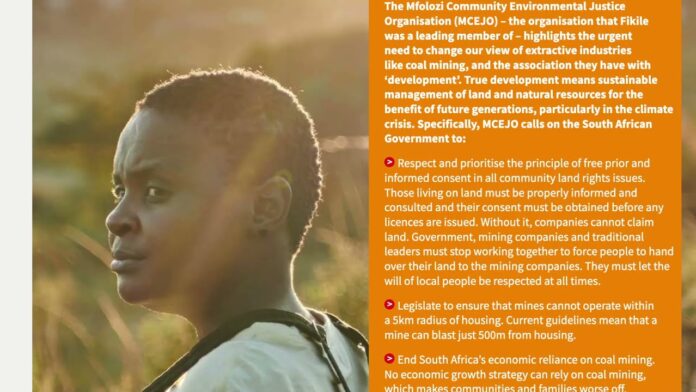Deforestation is a major global issue that not only affects the environment but also has a significant impact on indigenous peoples. It is defined as the deliberate clearing of forests for various purposes, such as agriculture, urbanization, and logging. According to a report by the United Nations Food and Agriculture Organization (FAO), an estimated 18 million acres of forest are lost each year, which is equivalent to 27 soccer fields every minute. This alarming rate of deforestation has resulted in severe consequences for both the environment and indigenous communities who rely on the forest for their survival.
The issue of land rights and environmental justice has been a crucial topic in recent years, and the impact of deforestation on indigenous peoples cannot be ignored. In this blog post, we will discuss in detail the impact of deforestation on indigenous peoples, including their livelihoods, culture, and health. We will also explore solutions to mitigate the effects of deforestation on these communities and preserve their way of life.
Overview of Deforestation
Before delving into the impact of deforestation on indigenous peoples, let’s first understand what deforestation is and why it is happening at such an alarming rate. Deforestation is the permanent removal of trees from forests, resulting in the conversion of forestland into other land uses. This practice has been ongoing for centuries, but it has accelerated in recent decades due to various factors such as population growth, economic development, and globalization.
One of the main causes of deforestation is agricultural expansion. As the world population continues to grow, the demand for food increases, leading to the conversion of forests into agricultural land. This is particularly true in developing countries where subsistence farming is the main source of livelihood for many people. Another significant cause of deforestation is commercial logging. The demand for timber and wood products has increased, leading to widespread tree felling in many forests.
In addition to these direct causes, there are also underlying factors that contribute to deforestation. These include economic and political instability, poor governance, and inadequate land rights. These underlying factors make it easier for corporations and governments to exploit forests for their own gain without considering the long-term consequences on the environment and indigenous communities.
Impact on Indigenous Peoples’ Livelihoods

Indigenous peoples have a deep connection to the forest and rely on it for their livelihoods. They have developed sustainable ways of living that are centered around the forest, including hunting, fishing, and gathering of fruits, nuts, and medicinal plants. However, deforestation has had a devastating impact on the way of life of these communities.
One of the main ways deforestation affects indigenous peoples’ livelihoods is by destroying their sources of food and income. As forests are cleared, their traditional hunting and fishing grounds disappear, making it difficult for them to obtain food. Moreover, the destruction of forests also affects the availability of natural resources, such as medicinal plants, which are essential for their health and well-being.
Deforestation also poses a threat to indigenous peoples’ cultural identity and their ability to maintain their traditional knowledge and practices. The forest is not only a source of food and income for these communities but also a spiritual and cultural place. It is where they connect with their ancestors and carry out traditional ceremonies and rituals. When forests are destroyed, it takes away a significant part of their culture and heritage, leading to a loss of identity and a breakdown of their social structures.
Furthermore, deforestation also leads to conflicts over land rights between indigenous peoples and corporations or governments. Many indigenous communities do not have legal titles to their land, making it easier for corporations and governments to claim ownership and exploit the resources without any consideration for the rights and well-being of these communities. This not only results in the displacement of indigenous peoples from their ancestral lands but also deprives them of their livelihoods and cultural identity.
Cultural Impact

The impact of deforestation on indigenous peoples goes beyond their livelihoods and has a significant cultural impact. As mentioned earlier, the forest is not just a source of food and income for these communities, but it also plays a crucial role in their spiritual and cultural practices. The destruction of forests has led to the loss of traditional knowledge and practices, as well as a decline in cultural diversity.
Indigenous peoples have a profound understanding of the forest ecosystem and the importance of preserving its biodiversity. However, with the loss of forests, their knowledge is also lost, and their ability to continue sustainable practices is hindered. This has resulted in a decline in cultural diversity, as indigenous communities are forced to adapt to new ways of life and abandon their traditional practices.
Moreover, deforestation also affects the mental health and well-being of indigenous peoples. The forest is an essential part of their identity and plays a vital role in promoting their mental and emotional well-being. When forests are destroyed, it can lead to a sense of displacement and disconnection from their culture and identity, causing psychological distress and trauma.
Health Impact
Deforestation also has a severe impact on the health of indigenous peoples. Traditional medicine plays a significant role in the healthcare of these communities, and many rely on the medicinal plants found in the forest for treatment. With the destruction of forests, these medicinal plants become scarce, making it difficult for indigenous peoples to access the treatments they need.
Moreover, deforestation also leads to water pollution, as the removal of trees causes soil erosion and contamination of rivers and streams. This has a direct impact on the health of indigenous communities who rely on these water sources for drinking, cooking, and bathing. In addition, the loss of biodiversity due to deforestation has also been linked to the emergence of new diseases and the spread of existing ones, further compromising the health of indigenous peoples.
Solutions to Mitigate the Impact
The impact of deforestation on indigenous peoples is a complex issue that requires a multi-faceted approach to address it. One of the most crucial steps in mitigating the impact is recognizing and respecting the land rights of indigenous communities. Governments and corporations must involve indigenous peoples in decision-making processes and ensure their participation in any development projects that may affect their land.
Another way to mitigate the impact of deforestation is through sustainable land-use practices. This includes promoting agroforestry, which combines agriculture with tree planting, as well as sustainable logging practices that do not harm the forest ecosystem. These practices can provide indigenous communities with alternative sources of income while preserving the forest and its resources for future generations.
Moreover, there needs to be better governance and regulation of industries that contribute to deforestation. Governments must enforce stricter laws and penalties for illegal logging and ensure that corporations adhere to sustainable practices and respect the rights of indigenous communities. In addition, there should be support and incentives for companies that adopt sustainable practices, encouraging them to protect the environment and promote social responsibility.
Conclusion
Deforestation has had a devastating impact on indigenous peoples, threatening their way of life, culture, and health. It is essential to recognize the rights of indigenous communities and involve them in decision-making processes that affect their land. Sustainable land-use practices and better governance are also crucial in mitigating the negative effects of deforestation. It is our responsibility to protect the environment and preserve the cultural diversity and well-being of indigenous peoples for generations to come.









